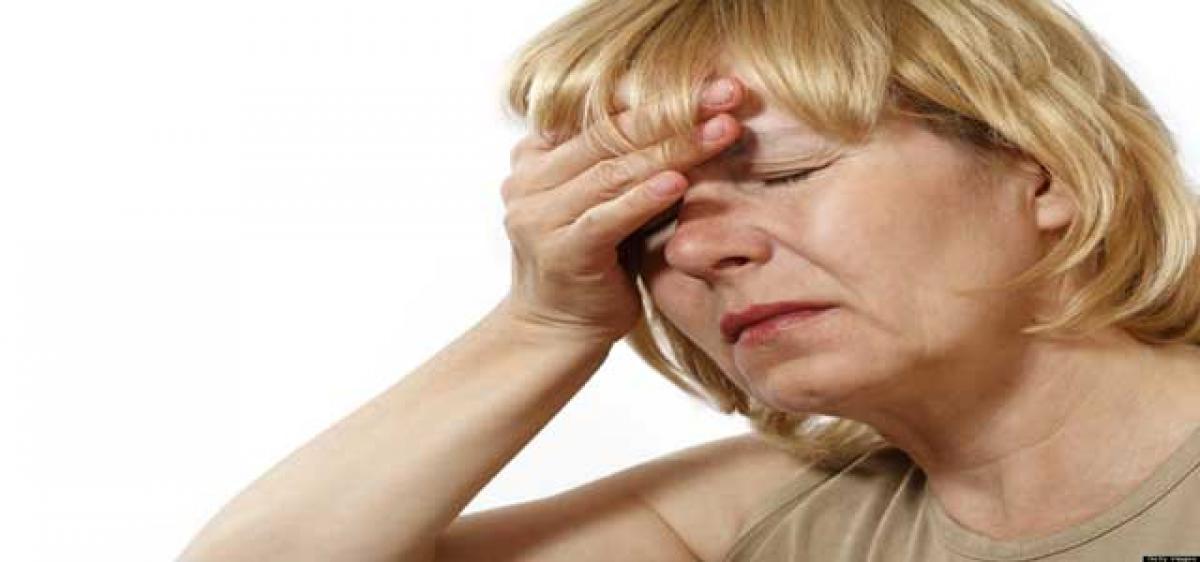Live
- Improve state of public parks, civic chief instructs officials
- Education Minister doesn’t know Kannada
- MSMEs churn 10-cr jobs in 15 months
- Tammineni busy consulting followers
- Manoj Kumar Sahoo new DRM of Waltair Division
- Career aspirants encouraged to stay focused on their goals
- Need for skills in pharmacy stressed
- Free entry to Visakha Museum on November 24
- Steel industry key to India’s economic growth: HDK
- Students in slums face accessibility challenges
Just In

The age at which a woman gets her first menstrual period and the number of children she bears in her lifetime are likely to determine the timing of her menopause, researchers, including one of Indian-origin, have found.
The age at which a woman gets her first menstrual period and the number of children she bears in her lifetime are likely to determine the timing of her menopause, researchers, including one of Indian-origin, have found.
The findings showed that women who started their menstrual periods at the age of 11 or younger had an 80 per cent higher risk of experiencing a natural menopause before the age of 40 premature menopause and a 30 per cent higher risk of menopause between the ages of 40-44 early menopause.
Further, the risk of premature or early menopause increased five-fold and two-fold respectively in women who had never been pregnant or never had children. "The timing of menopause is a biological marker of reproductive ageing, which has implications for health and the risk of chronic diseases," said led researcher Gita Mishra, Professor at the University of Queensland in Australia.
In the general population of women in high-income countries, the prevalence of premature menopause is two per cent and early menopause 7.6 per cent. Therefore, the combination of starting periods early and having no children means the absolute risk of premature or early menopause for these women is 5.2 per cent and 9.9 per cent respectively.
Early menopause is linked with chronic conditions such as heart disease, osteoporosis, among others. "Thus, if we want to improve health outcomes in the later life, we need to think about the risk factors through the whole of a woman's life from the early years and the time of their first period through to their childbearing years and menopause," Mishra added. menopause and whether or not a woman has had children.

© 2024 Hyderabad Media House Limited/The Hans India. All rights reserved. Powered by hocalwire.com







